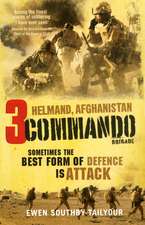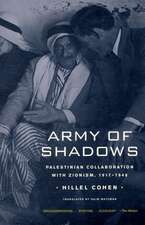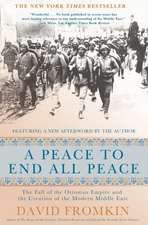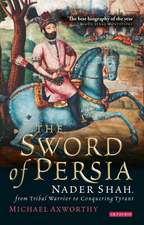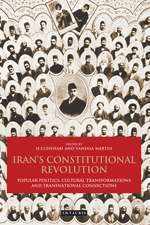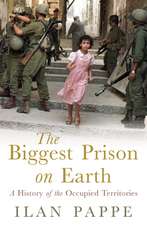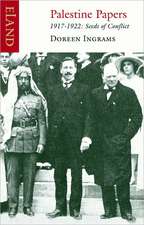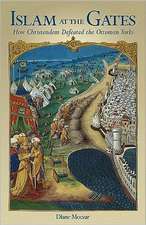Iran: From Religious Dispute to Revolution
Autor Michael M. J. Fischeren Limba Engleză Paperback – 24 iun 2003
Preț: 216.57 lei
Nou
Puncte Express: 325
Preț estimativ în valută:
41.44€ • 43.38$ • 34.29£
41.44€ • 43.38$ • 34.29£
Carte tipărită la comandă
Livrare economică 05-19 aprilie
Preluare comenzi: 021 569.72.76
Specificații
ISBN-13: 9780299184742
ISBN-10: 0299184749
Pagini: 360
Ilustrații: 3 b-w photos, 14 illus., 1 map
Dimensiuni: 152 x 229 x 28 mm
Greutate: 0.48 kg
Ediția:2
Editura: University of Wisconsin Press
Colecția University of Wisconsin Press
ISBN-10: 0299184749
Pagini: 360
Ilustrații: 3 b-w photos, 14 illus., 1 map
Dimensiuni: 152 x 229 x 28 mm
Greutate: 0.48 kg
Ediția:2
Editura: University of Wisconsin Press
Colecția University of Wisconsin Press
Recenzii
"This book, the best I have read in a long time, provides us with a key to understanding not only the recent revolution but Iranian society."—Peter Chelkowski, Asia
Notă biografică
Michael M. J. Fischer is professor of anthropology and of science and technology studies and former director of the Program in Science, Technology, and Society at the Massachusetts Institute of Technology.
Descriere
Unlike much of the instant analysis that appeared at the time of the Iranian revolution, Iran: From Religious Dispute to Revolution is based upon extensive fieldwork carried out in Iran. Michael M. J. Fischer draws upon his rich experience with the mullahs and their students in the holy city of Qum, composing a picture of Iranian society from the inside—the lives of ordinary people, the way that each class interprets Islam, and the role of religion and religious education in the culture. Fischer’s book, with its new introduction updating arguments for the post-Revolutionary period, brings a dynamic view of a society undergoing metamorphosis, which remains fundamental to understanding Iranian society in the early twenty-first century.

